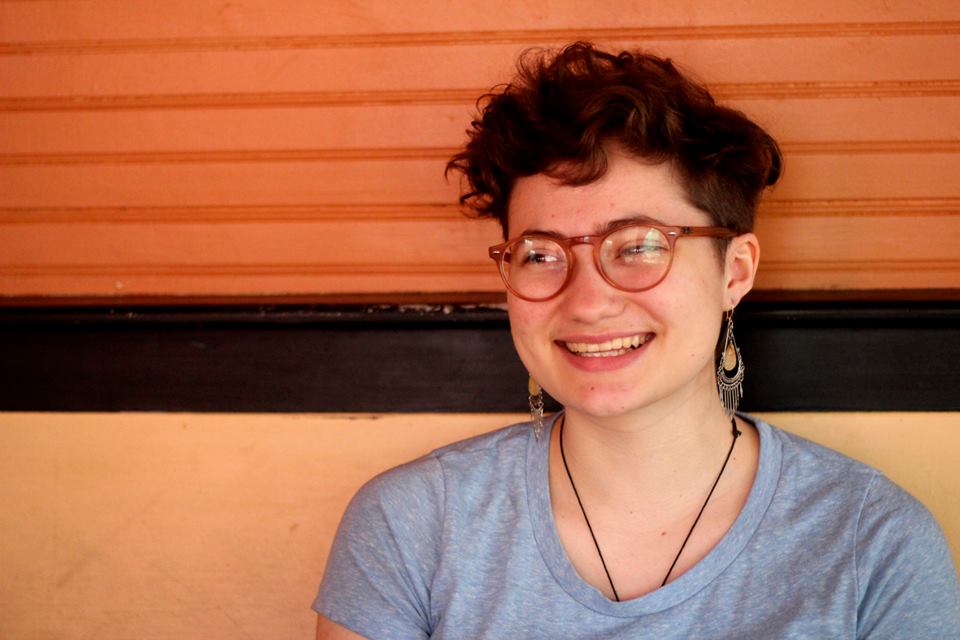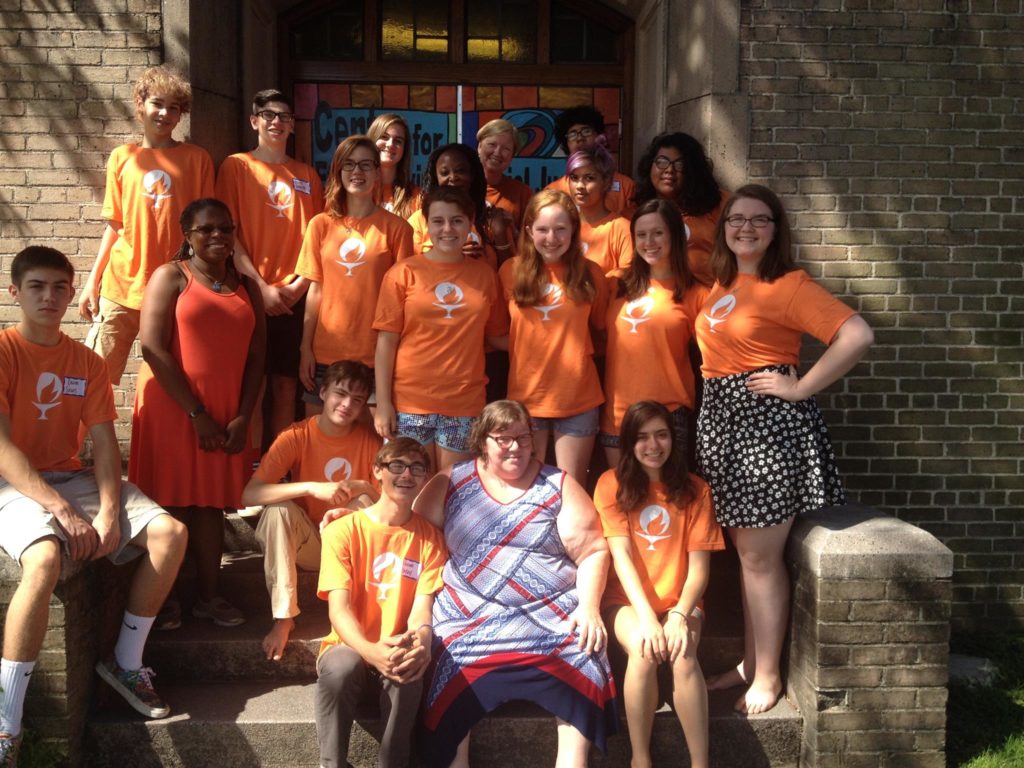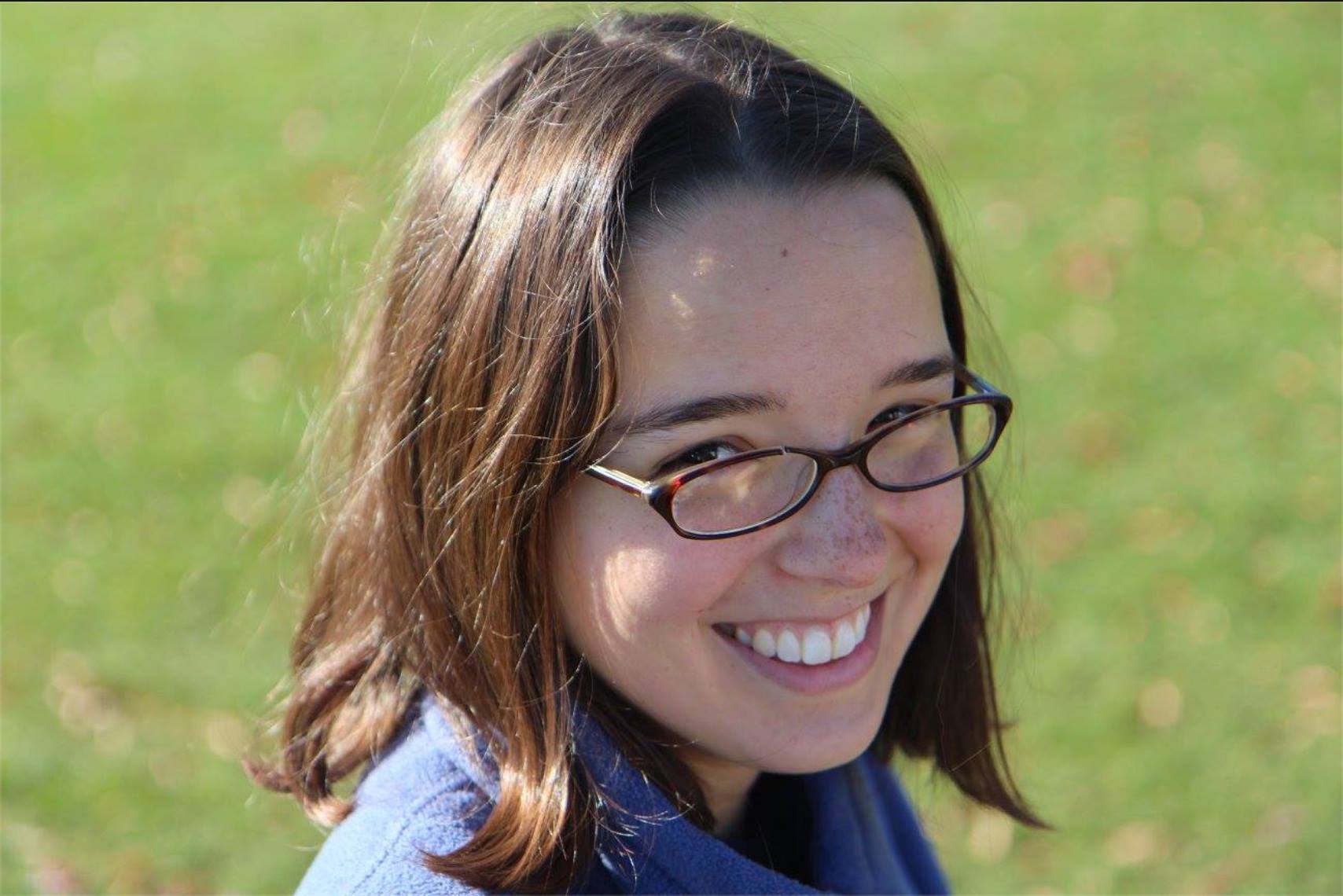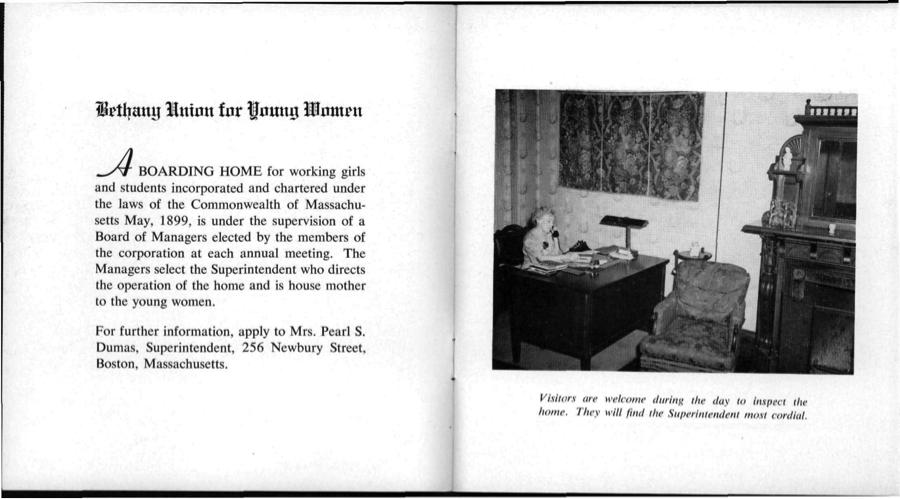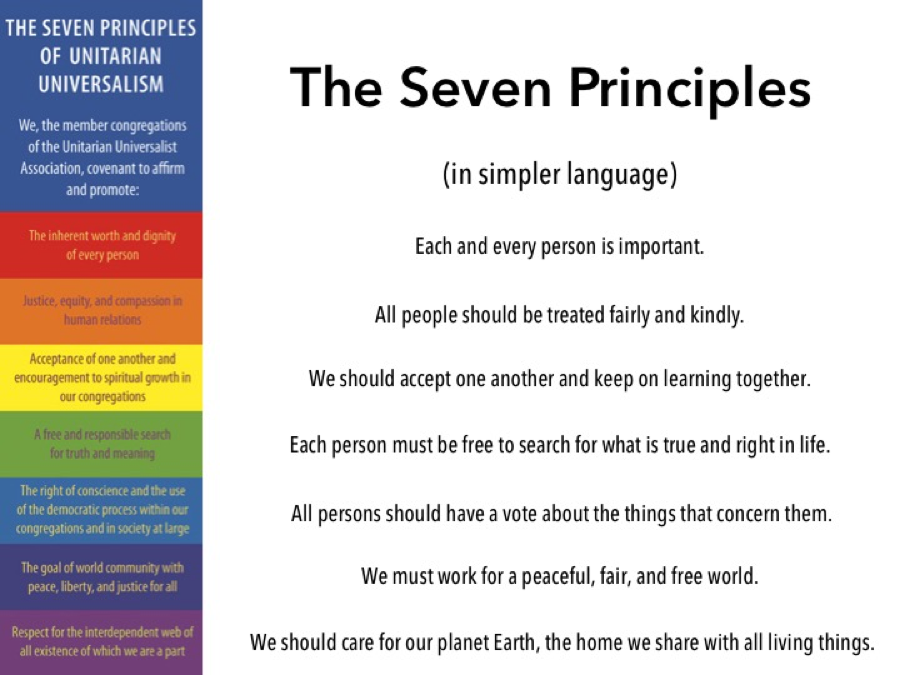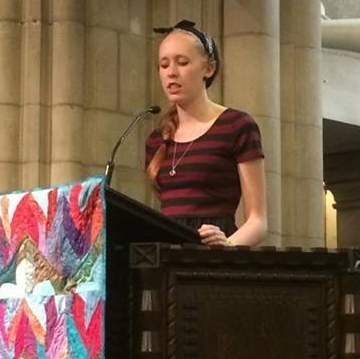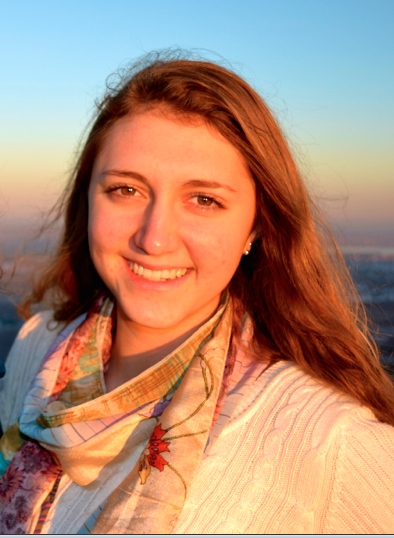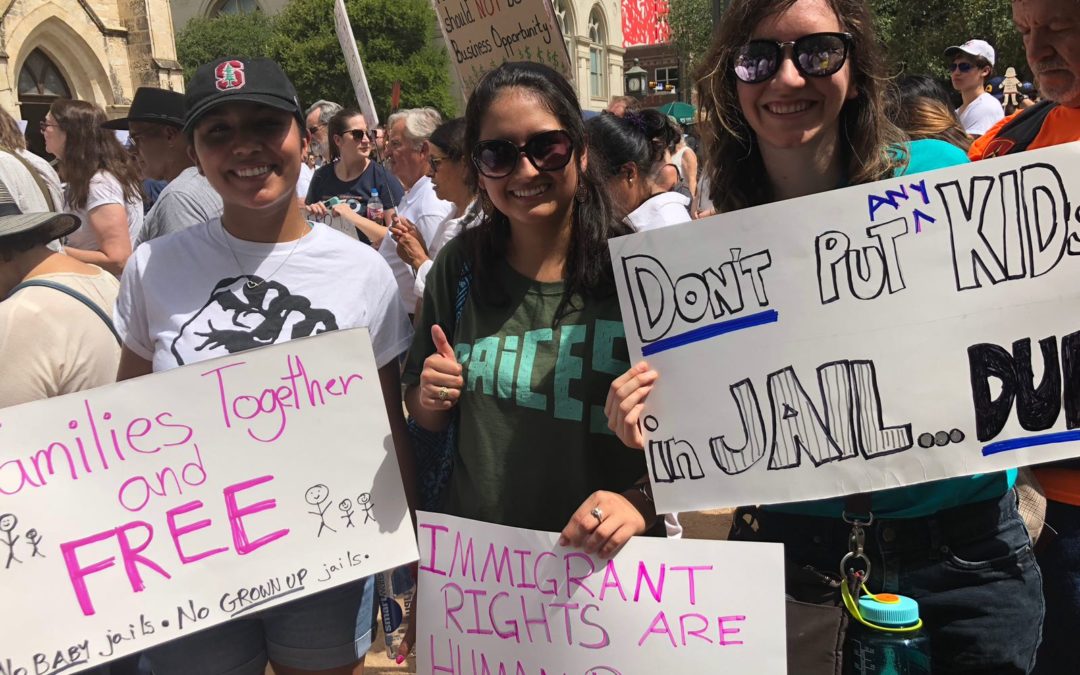
Insights from our RAICES Interns
This summer, two of our Global Justice Interns are working with RAICES. In the past few weeks, RAICES has been in the national spotlight for the work they have been doing to help reunite separated families. Thanks to a viral Facebook fundraiser, they have raised more than $20 million dollars to continue fighting for immigration justice. We reached out to our interns to see how they are feeling about working with such an important organization at such a critical time. Here is what they had to say:
“The opportunity to work for RAICES when they are essentially on the front line of many immigration issues has been an extremely humbling experience. On a daily basis we interact with moms fighting for their children’s right to a better future. I feel blessed to be able to help these families in any way possible. The work we do is hard, but it is essential. Immigrant rights are human rights and we must always fight for humanity. La lucha siegue!” – Diana
“As someone who is already passionate about immigration rights and the immigration movement; I was blown away when I arrived at RAICES. The attorneys, legal assistants, and others are equally as passionate. They commit to long hours, and work through nights if something needs to get done. It’s amazing to see a group of people equally committed to making a difference. It just fueled me to run with what I love – the immigration movement. When I arrived at Karnes Detention Center, I was nervous. However, I was greeted by women and children who are grateful for our work. It’s difficult to listen to their stories, however these women symbolize the every parent. Every parent would do anything to give their child love, security, and a future. It’s incredible to see these women and their resilience. The children are also so kind and joyful, despite it feeling like the world is against them. Like Diana said, the work we do is hard, but it needs to be done. Immigration is about family and it always will be, and I am grateful to be in the front lines of this movement. Let’s fight the good fight!” – Jamie
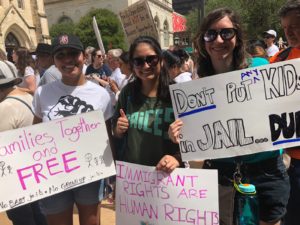
Diana (center) poses with two other RAICES interns at the San Antonio Families Belong Together Rally on June 30.

